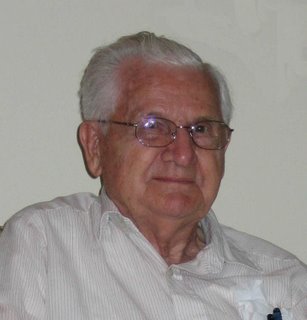Conscience
Most of our actions take place with little concern about whether they are proper or not. We simply assume that our normal habits of conduct are right and that our sense of right and wrong would sound an alarm if we started to do something improper. Responding to this alarm is one of the primary functions of our conscience and if our experience and past training remind us that such action would be wrong we are compelled to refrain from the action. This is an example of our conscience in action.
The conscience is part of our human makeup which serves as a guide to our conduct. It is a quality of mind and heart which grows as we age and make decisions in our daily lives. In time it becomes so thoroughly embedded in us that we come to regard our conscience as an essential and natural part of our existence. It becomes accepted as our reliable guide in matters of right and wrong conduct.
There is no enforcement officer who prohibits us from doing something that the conscience advises against doing. The conscience has done its job. The go/no go decision is left up to us. We may agree with the judgment of our conscience, pass up the action and go about our affairs. However, we are free to disregard the advice of our conscience and choose to do the act anyway.
Consideration to go or not to go brings into play within our mind a series of back and forth questions and rationalizations. “Who says it is wrong?” “What right have they to say what I can do?” “Other folks do this all the time.” “Maybe no one will find out about it.” “If I am caught I can beat the rap, I can explain it away.” On and on we try to justify the action that we knew was wrong all along.
Aside from the penalties meted out by the authorities, there is a more serious damage to the conscience which may be overlooked or felt to be of little consequence. Repeated rejection of conscience’s advice hacks away a bit of the conscience’s power so that successive rejections may convince the conscience that it is being ignored or its opinions felt to be of no value. Soon it will stop functioning. Or worse it may commence giving assent to whatever actions its master wishes to do.
Without guidance from the conscience a person’s mind can justify any action the person wishes to do. Theft, rape, murder and treason can be justified in the minds of persons whose conscience has been dulled or neutralized by warped reason and rationalization.
With these consequences in mind we can recognize the importance of morality training by parents, teachers, ministers, police and judges. On their knowledge, skill and performance rests the future of our society and civilization itself.
Jerry Clements 6/30/08
The conscience is part of our human makeup which serves as a guide to our conduct. It is a quality of mind and heart which grows as we age and make decisions in our daily lives. In time it becomes so thoroughly embedded in us that we come to regard our conscience as an essential and natural part of our existence. It becomes accepted as our reliable guide in matters of right and wrong conduct.
There is no enforcement officer who prohibits us from doing something that the conscience advises against doing. The conscience has done its job. The go/no go decision is left up to us. We may agree with the judgment of our conscience, pass up the action and go about our affairs. However, we are free to disregard the advice of our conscience and choose to do the act anyway.
Consideration to go or not to go brings into play within our mind a series of back and forth questions and rationalizations. “Who says it is wrong?” “What right have they to say what I can do?” “Other folks do this all the time.” “Maybe no one will find out about it.” “If I am caught I can beat the rap, I can explain it away.” On and on we try to justify the action that we knew was wrong all along.
Aside from the penalties meted out by the authorities, there is a more serious damage to the conscience which may be overlooked or felt to be of little consequence. Repeated rejection of conscience’s advice hacks away a bit of the conscience’s power so that successive rejections may convince the conscience that it is being ignored or its opinions felt to be of no value. Soon it will stop functioning. Or worse it may commence giving assent to whatever actions its master wishes to do.
Without guidance from the conscience a person’s mind can justify any action the person wishes to do. Theft, rape, murder and treason can be justified in the minds of persons whose conscience has been dulled or neutralized by warped reason and rationalization.
With these consequences in mind we can recognize the importance of morality training by parents, teachers, ministers, police and judges. On their knowledge, skill and performance rests the future of our society and civilization itself.
Jerry Clements 6/30/08
Labels: conscience, essay, jerry clements, moral training, philosphy


0 Comments:
Post a Comment
<< Home